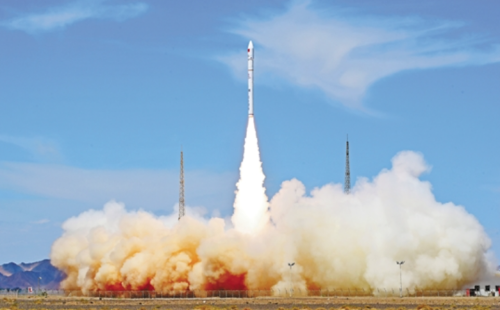Shaoxing enterprise helps launch China's first ultra-low orbit satellite

A rocket carrying the Qiankun 1 satellite blasts off from the Jiuquan Satellite Launch Center in Northwest China on July 22. [Photo/Wang Jiangbo for Zhejiang Daily]
The "Qiankun 1" satellite, China's first ultra-low orbit test satellite developed by Shaoxing-based C-Space Intelligent Technology Co, was launched into space from the Jiuquan Satellite Launch Center in Northwest China on July 22.
At an orbital altitude of 500 kilometers, "Qiankun 1" is slated to undertake long-term stable flight missions at 300 kilometers, 268.13 kilometers, and 250 kilometers as per mission requirements.
Ultimately, the satellite will descend to an orbit below 200 kilometers, marking a significant breakthrough in conducting short-term flight tests at extremely low orbital heights.
The ultra-low orbit spans a space approximately 150 to 300 kilometers above the Earth's surface that currently has no long-term spacecraft presence. The successful launch of "Qiankun 1" has validated multiple experimental tasks related to ultra-low orbit, filling a critical gap in China's ultra-low orbit space technology.
C-Space Intelligent Technology Co is the first private aerospace startup in China to focus on intelligent aerospace vehicles for ultra-low orbit. Their research and development center is located in Hangzhou, with an aerospace intelligent manufacturing base established in the Zhuji Economic Development Zone (High-Tech Zone).
C-Space plans to achieve an annual production capacity of 200 high-quality intelligent remote sensing satellites by 2024. Their next step involves building a constellation and network of satellites specifically tailored to various application requirements for ultra-low orbit.


 Shaoxing Showdowns
Shaoxing Showdowns Zhejiang: A Decade of Progress
Zhejiang: A Decade of Progress Shaoxing in expats' eyes
Shaoxing in expats' eyes